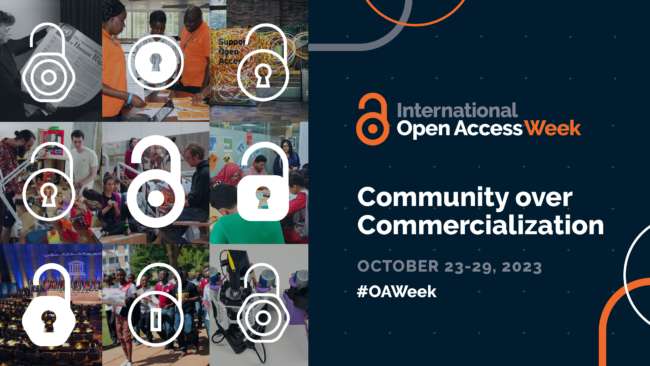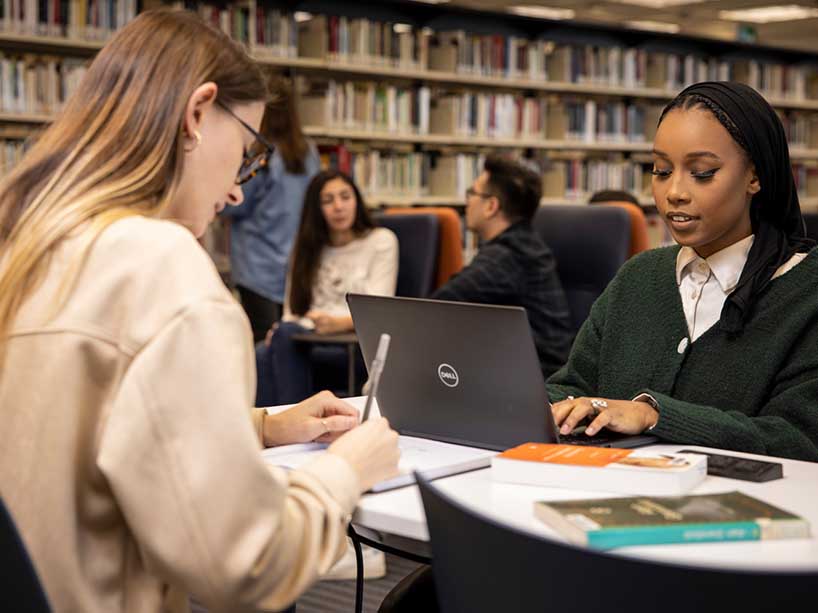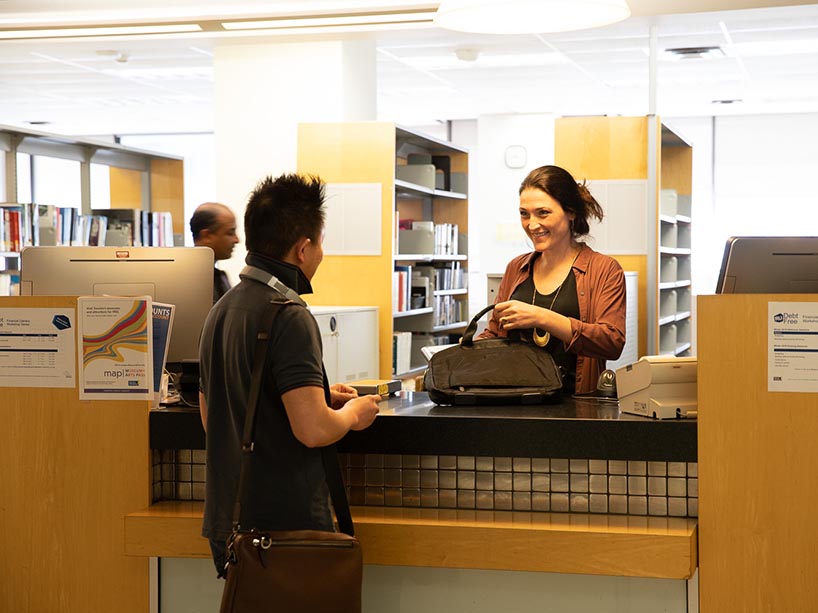 Toronto Metropolitan University (TMU) Libraries institutional repository preserves and disseminates all TMU faculty and student research outputs, making it easy to discover, share and cite work.
Toronto Metropolitan University (TMU) Libraries institutional repository preserves and disseminates all TMU faculty and student research outputs, making it easy to discover, share and cite work.
Updated from a previous repository platform to RShare (a powerful open access repository system) and launched in 2021, the institutional repository holds the work of TMU faculty, researchers, and students in a single location. The platform supports any file type including: text, images, video, audio, datasets and 3D models. TMU community members can submit and also discover research and the work of their peers – from articles to conference and working papers. “I have been working on a wide variety of modalities and research formats, which can all be captured through RShare,” says Jack Layton Chair and Professor Ken Moffatt, adding that “by referring people to RShare they can see the work I have done including: video, podcasts, SSHRC research site, articles both refereed and non refereed and scholarly books.”
Greater access to TMU research also improves discoverability by other institutions, peers and researchers, globally. “RShare brings faculty work together under one institutional banner,” says Digital Repository Coordinator, Toby Malone. “This encourages trust in work that’s been carefully curated and stringently checked for copyright requirements.”
Having a central holding of research outputs for any academic institution enables it to showcase and highlight innovative areas of research being studied at that institution; as well as work that is breaking new ground. It also promotes equitable access and makes research and data public – a requirement of the tri-agency funding programs. For faculty, it gives their peers (national and international) open access to their scholarly outputs, which in turn helps to establish more collaborations and higher citation numbers, increasing the impact of their work.
These open research platforms benefit the research community in many ways, including the possibility of continuing to further develop work through community awareness and collaboration. They also result in less of a need to rely on sites like ResearchGate and Academia.edu for content sharing.
Sociology Professor and Director of the Centre for Studies in Food Security, Mustafa Koc has worked with Malone to add his work on food systems to RShare. “I tried using different programs to load my publications online,” says Koc, adding “my experiences often ended with frustration.” In using RShare, Malone guided him through how the platform works and provided support in uploading articles. Koc has now posted some of his older, harder to find, papers and is digging up files which could have archival significance about food systems activism in Canada. “Posting these on RShare will not only improve accessibility to my files, but also accessibility to many of my other colleagues and to the research community at TMU,” says Koc.
This past year the TMU repository collection has grown substantially. Malone has played a major role in its growth by directly reaching out to faculty and encouraging participation and submissions to RShare. “Over the last year, close to one thousand TMU faculty members across every department in the institution have been contacted,” says Malone. His efforts have paid off. The number of faculty subscribers to the platform is now 787 and growing, up from 240 members in 2022. Along with the number of subscribers, the number of items submitted to the repository has increased. In September 2022 RShare held 7,343 items. Since then, 2,349 items have been added, including: links to 50 books, 63 book chapters, 38 conference papers, 6 datasets, 3 figures, 1,205 journal articles, 19 media items, 67 online resources, 4 posters, 203 preprints, 14 presentations, 124 reports, and 553 theses/dissertations/MRPs.
The response to the new repository continues to be more than enthusiastic and faculty like Mustafa Koc and Ken Moffatt are helping to spread the word. “I contacted my department and asked my chair to add an RShare link to our personal accounts when updating the website,” says Koc, noting that he also wants to learn how to upload data and documents. “I refer my colleagues and students to RShare. It is very helpful to have a location on campus that collects all modes of my academic work and community outreach,” says Moffatt.
RShare is open to the TMU community. If you are TMU faculty, researcher, instructor or student and would like to learn more, please contact TMU Libraries Digital Repository Coordinator, Toby Malone: toby.malone@torontomu.ca
To activate a free account, visit: https://rshare.library.torontomu.ca/
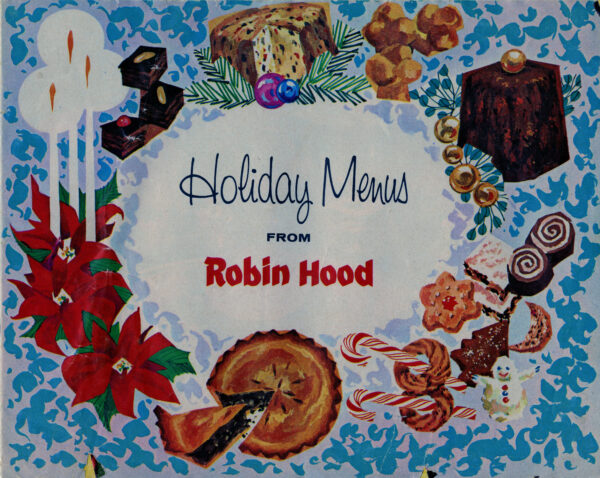
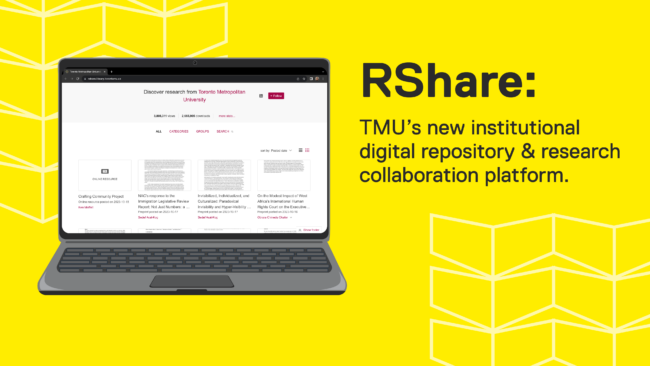 Toronto Metropolitan University (TMU) Libraries institutional repository preserves and disseminates all TMU faculty and student research outputs, making it easy to discover, share and cite work.
Toronto Metropolitan University (TMU) Libraries institutional repository preserves and disseminates all TMU faculty and student research outputs, making it easy to discover, share and cite work. 